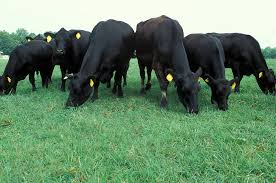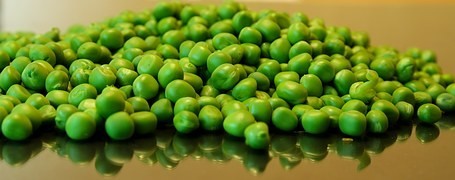Pure pea protein is considered one of the best protein supplements
Learn why using pea protein supplements can work to your advantage.
Many people take protein supplements to enhance their nutritional intake. These supplements are designed to offer key proteins in a form that’s easy to absorb. Protein supplements are enriched with essential amino acids, including muscle building branch-chain amino acids (BCCAs). There are many different protein sources. However, some are better than others.
Often commonly used commercial protein powders have a high concentration of egg, whey, soy, and/or wheat gluten. These ingredients can cause adverse health reactions and often trigger inflammatory responses. There may also be religious and/or personal reasons why these protein sources are not a viable option.
Issues with animal protein sources
 There are many protein powers that are based on animal sources. These are widely accessible forms of completely protein and generally cost effective to produce. However there are many issues raised against the use of animal protein sources in supplements.
There are many protein powers that are based on animal sources. These are widely accessible forms of completely protein and generally cost effective to produce. However there are many issues raised against the use of animal protein sources in supplements.
For economical reasons, most animal protein comes from animals that have been raised in factory farms. However, this protein is not pure and can be highly toxic. Animal protein sourced from animals raised in conventional factory farms is highly altered.
These animals are fed genetically modified gains that typically have a high concentration of pesticide residue. Furthermore, these animals are regularly administered antibiotics and growth hormones. The way in which these animals are raised leads to significant toxic accumulation within the tissues and the by-products.
There are some animal protein sources that are safer. These come from animals that are grass or pasture raised and not subjected to growth-hormones or other manipulation. One example is non-denatured whey protein. This is considered a very high quality protein supplement and is easily digested.
However, there are many reasons why even pure animal protein is unsuitable. Many people have sensitivity to dairy proteins (whey and casein) and/or egg protein (albumin). Consequently these protein sources must be avoided. Also for people that subscribe to a vegan lifestyle, animal proteins are not part of their diet.
Why pure pea protein is the best vegetarian source
Of all the plant sources of protein, pea protein is thought to cause the fewest allergies. Furthermore, it has a very high absorption rate at 98%. As the body is able to digest this protein efficiently, it can be assimilated into muscle tissue faster.
This makes pure pea protein an effective aid when trying to build muscle mass and strength. Other proteins that are difficult for the body to digest or absorb typically cause bloating and are not as effective for creating muscle tissue. This is the case with the majority of plant proteins, with the exception of peas and hemp.
Pea protein is enriched with BCAAs for muscle building
Pure pea protein contains all the essential amino acids, making it a complete protein. While there are other complete proteins, pea protein is also a particularly rich source of branched chain amino acids (BCAAs). These amino acids play an important role in muscle growth and recovery1, 2.
Often toted as the ‘building blocks of muscles’, BCAAs make up for over a quarter of muscle mass and required for building cells and repairing damaged tissue. These amino acids carry nitrogen to help synthesis other compounds required for anabolic muscle action and energy production. BCAAs will boost muscle growth while simultaneously increasing stamina and burning body fat.
There are three amino acids classified as BCAAs. These are leucine, valine and isoleucine. Pure pea protein is enriched with all three of these amino acids. This makes pea protein a complete source of BCAAs which can be easily absorbed by the body.
Other key amino acids found in pea protein for muscle building
To enhance muscle building potential the body must be able to support a healthy circulatory system. This requires a reliable source of the amino acid L-arginine. This amino acid is an essential precursor to nitric oxide (NO). This gas is necessary to support optimal blood flow, subsequently enhancing cardiovascular health, sexual performance, and stamina. Due to the actions of L-arginine, this amino acid helps to support a healthy, lean body3. Pea protein is one of the richest plants sources L-arginine.
Another important amino acid found in a high concentration in pure pea protein is L-lysine. This amino acid helps to absorb calcium and mobilise fat for energy use. In addition to building muscle mass, L-lysine supports optimal nitrogen levels and a leaner body mass when the body is experiencing periods of fatigue and stress.
L-lysine is the precursor of carnitine. To convert fatty acids into energy the body requires carnitine. Also, this amino acid is involved in the formation of cartilage, tendons, skin, and bones. Carnitine is needed to produce the collagen required by these regions of connective tissues.
L-phenylalanine is another amino acid enriched in pea protein that assists with muscle growth. A precursor to the amino acid L-tyrosine, L-phenylalanine contributes to the regulation of catecholamines, thyroid hormones, and melanin 4.
Catecholamines (such as dopamine, norepinephrine and epinephrine) help to regulate mood and can help with motivation and are often desirable when body building. Thyroid hormones play a critical role in metabolism and subsequent weight management. This makes L-phenylalanine an important amino acid to support lean body mass.
Pure pea protein supplements
There are lots of companies retailing pea protein supplements. It’s recommended to only use a pea protein supplement that is GMO-free and organic. Always read the ingredient list carefully and read customer reviews when available.
References
- “Shimomura, Y. et.al. (2006). Nutraceutical effects of branched-chain amino acids on skeletal muscle. The Journal of Nutrition. Volume 136, Issue 2. (pp. 5295-325)” ↩
- “Blomstrand, E. et.al. (2006). Branched-chain amino acids activate key enzymes in protein synthesis after physical exercise. The Journal of Nutrition. Volume 136, Issue 1. (pp. 2695-735)” ↩
- “McKnight, J. et.al. (2010). Beneficial effects of l-arginine on reducing obesity: potential mechanisms and important implications for human health. Amino Acids. Volume 39, Issue 2, (pp. 349-57).” ↩
- “Fernstrom J. and Fernstrom M. (2007). Tyrosine, phenylalanine, and catecholamine synthesis and function in the brain. The Journal of Nutrition. Volume 5, (pp. 1539-47).” ↩





